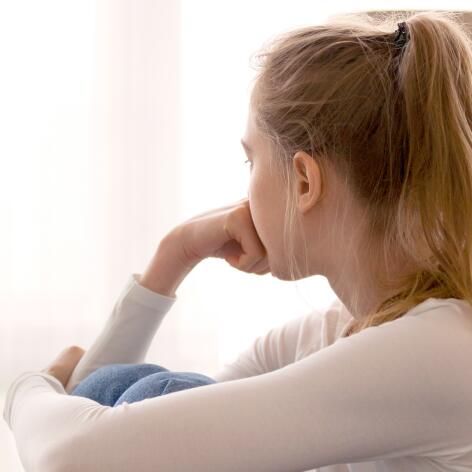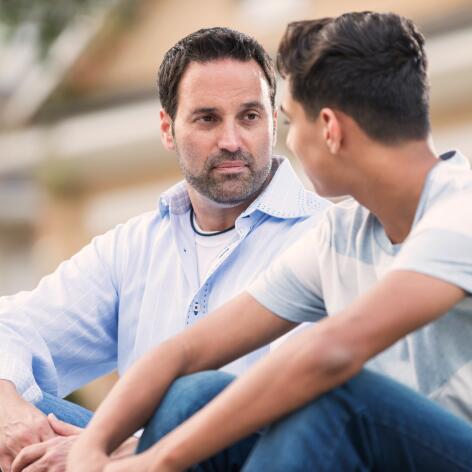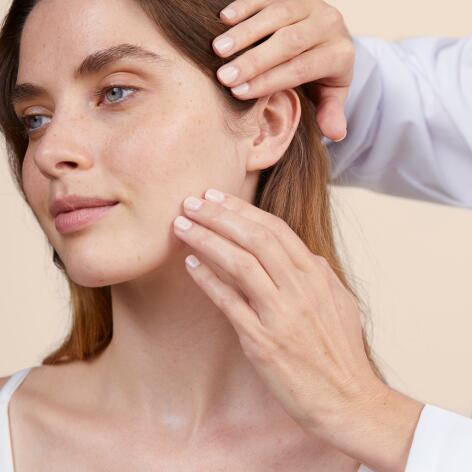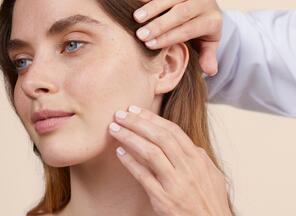Teenage acne
Enlarged pores, pimples, blackheads that can become inflamed, oily and shiny skin... There's no doubt that your teenager is suffering from teenage acne. And this may also bring back painful memories. Even though it’s often mild, acne can be an ordeal. Fortunately, from skincare routines to medical treatments, there are solutions available.
Teenage acne : difficult to live with for teens
Hormonal changes in puberty often lead the development of acne during
adolescence
. This skin condition affects 80% of teenagers*. It’s around age 12-13 years for girls and 14-15 years for boys that the skin becomes oily and blackheads start to appear. Because acne is visible and often causes physical pain,
it
can have a significant impact on the lives of
teens,
and some suffer more than the majority. The potential impacts of acne on self-esteem shouldn’t be underestimated: simply talking about this with a doctor can be a first reassuring step.

How to can you support your teenager dealing with acne ?
As parents, you play a vital role in helping your teenager through these years of profound transformation, which can sometimes be associated with acne . Of course, taking your teen to see a doctor if they are suffering from spots is an important step. But you can also guide them in daily life by encouraging a healthy lifestyle. From a balanced diet to regular physical activity and avoiding smoking and stress, there are several ways to support your teenager in their path towards adulthood and the adoption of a healthy lifestyle that will make them feel better about themselves.

Friendly, expert advice
It can be hard to understand that acne cannot always be cured as quickly we might like. One thing is for certain: it is best to get acne treated early to avoid marks and scars as much as possible. The longer you wait for imperfections to get worse, the more difficult the treatment is likely to be.
What treatments are there for teens ?
There are several treatment options for teenage acne . Treatments applied to the skin for mild acne can target spots in a localised manner. Oral antibiotics may be used when acne is more extensive and inflammatory. Finally, prescription products are often effective for more severe acne. The use of isotretinoin is highly regulated in girls because of the risk of foetal malformation in the event of pregnancy. Always ask your dermatologist for advice.

We answer your questions
We’re here to help you sort fact from fiction
No. Young people are not the only ones who get acne. Adults are also affected, especially women (almost one in four women in their thirties).
No. In teenagers, acne pimples are usually located on the T-zone: the part of the face where the nose, forehead and chin meet. But acne doesn't only affect this area: spots also appear on the neckline and back.
Once a spot has been squeezed, the skin can become infected, especially from microbes under the nails. This also increases the risk of scarring.
Our solutions for taking care of your acne-prone skin
Our Cleanance skin care products are designed to make peace you with your skin
Cleanance Comedomed Anti-Blemish Concentrate
It’s a small miracle for my skin: it’s helped a lot with reducing my imperfections in two months. It's been really beneficial! Can't wait to see the result in a few more months and hope that it will make them disappear for good.
Margot, 26 years
MORE
NEWSLETTER
We're always here for your skin!
All our advice on how to take care of your skin day to day.

Which skin care routine should you adopt?
Identify what it really needs with the help of our experts and discover the most suitable skin care routine for you.
